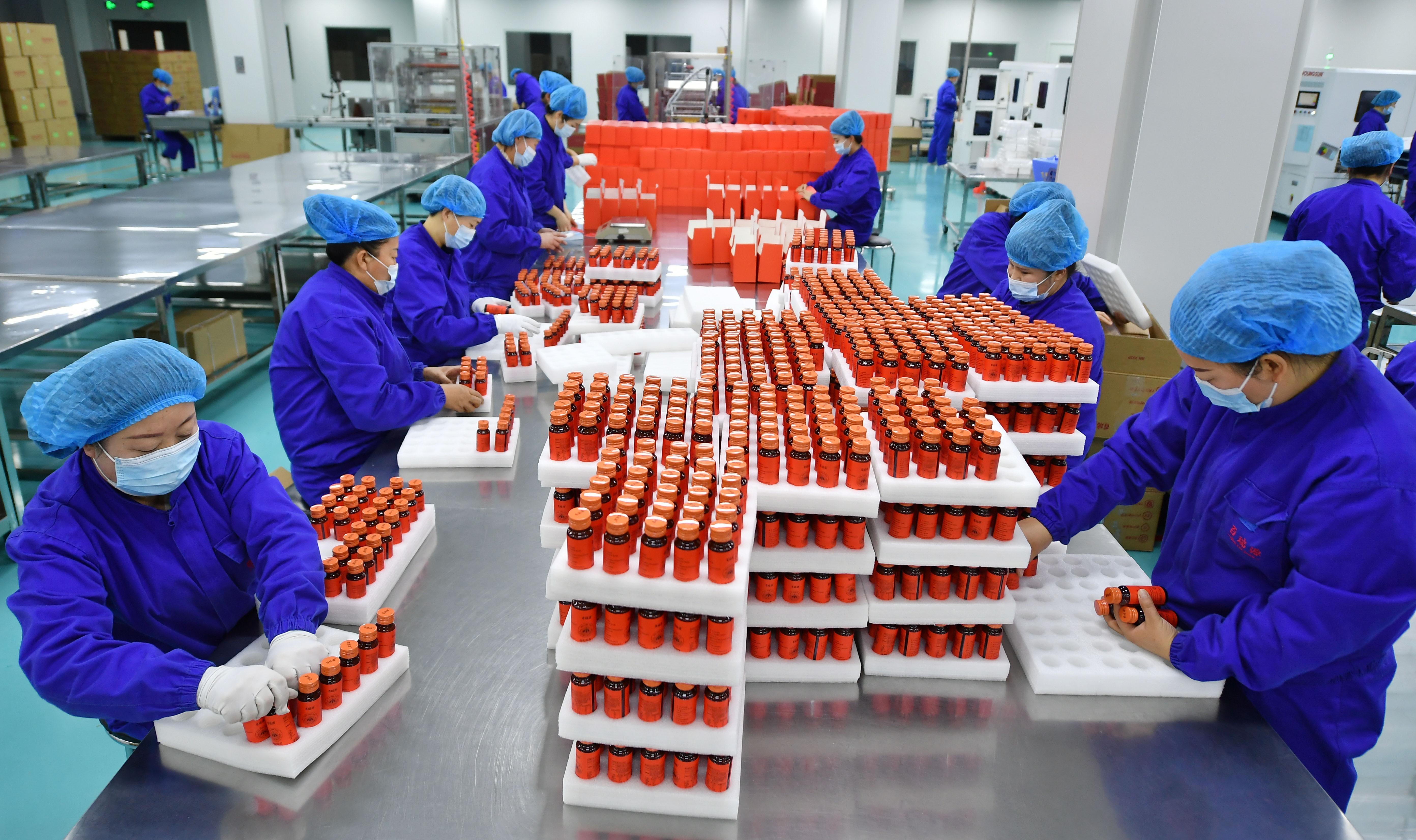Guangzhou among local governments set to ensure protection of rights, high-quality development
 Workers pack goji berry juice products at a factory in Yinchuan, Ningxia Hui autonomous region, in January. (PHOTO / XINHUA)
Workers pack goji berry juice products at a factory in Yinchuan, Ningxia Hui autonomous region, in January. (PHOTO / XINHUA)
Authorities in Guangzhou, capital of Guangdong province, are planning legislative changes to boost private businesses in order to ensure the high-quality development of the local private economy.
Citing shifts in the private economy from rapid growth to high-quality development, Ye Huadong, director of the Guangzhou Small and Medium-sized Enterprises Bureau, said the changes will address key issues to boost the confidence of local private companies.
The new rules are expected to be approved by local legislators by the year's end, Ye said.
"The 42-article document, covering general principles, innovative development and the rights and interests of the private economy, aims to protect the legitimate rights and interests and optimize the development environment of private firms," Ye said.
Specific measures are included in a draft saying that government departments should not in an arbitrary way terminate the legitimate use of production and business premises of private companies.
Additionally, banking and financial institutions should not stop issuing loans to private enterprises or terminate loans before they are due, according to a draft that was open to the public for comments from March 17 to April 1.
In Guangzhou, the private economy contributes 95 percent of market players, over 80 percent of new jobs and more than 40 percent of the GDP, fixed assets, investment and tax revenue, according to the province's industry and information technology bureau.
In the case of land use for private enterprises, the draft will require government departments to make reasonable use of existing land stocks, unused State-owned factories, professional markets and other places to provide adequate space for the operation of the private economy.
Land for private projects that comply with land planning and industrial policies may be provided through industrial land supply methods such as lease-purchase agreements and flexible annual leasing to reduce land costs, said the draft document. Besides, small and medium-sized private companies that jointly participate in the bidding and auction of industrial land are allowed to divide the land according to regulations.
 An employee of Chinese home appliance maker Midea Group inspects air conditioners at a workshop in Guangzhou, Guangdong province, in March. DENG HUA/XINHUA(PHOTO / XINHUA)
An employee of Chinese home appliance maker Midea Group inspects air conditioners at a workshop in Guangzhou, Guangdong province, in March. DENG HUA/XINHUA(PHOTO / XINHUA)
To protect the rights and interests of private enterprises, the draft regulation requires a unified negative list system for market access in accordance with national regulations. Such a negative list ensures that no discriminatory conditions are to be imposed on private companies that enter industries and fields that are not explicitly prohibited by laws and administrative regulations.
"The draft document not only addresses the protection of rights and interests of private enterprises, but also attaches great importance to innovative development, which will be a new trend for growth," said Shao Jianming, vice-chairman of the Guangzhou Federation of Industry and Commerce.
Similar steps are also being taken elsewhere in China.
On March 24, authorities in Yinchuan, capital of the Ningxia Hui autonomous region, announced several measures to improve the business environment and ensure high-quality development in the private economy.
Shaanxi and Hainan provinces have also recently announced measures to address key common issues that local enterprises are facing in improving the business environment and boosting innovative development by the private economy.
Such local government regulations are in line with the country's determination to enable private entrepreneurs to grow and thrive.
China's private enterprises will have a better environment and broader development space, Premier Li Qiang said at his first news conference as premier, following the conclusion of the first session of the 14th National People's Congress, China's top legislature, in mid-March.
The nation will continue to foster a market-oriented, law-based business environment in keeping with international standards, treat companies of all types of ownership as equals and protect the property rights of enterprises as well as the rights and interests of entrepreneurs in accordance with the law, according to Li.
At the national level, there have been growing calls for legislation for the development of the private economy. During this year's annual NPC session, the All-China Federation of Industry and Commerce proposed the formulation of a law on the promotion of the private economy and encouraging private enterprises to compete fairly with other business units.
According to the Ministry of Industry and Information Technology, private companies contributed about 50 percent of the country's tax revenue, 60 percent of GDP and 70 percent of technological innovation and accounted for 80 percent of urban employment in 2022.
The All-China Federation of Industry and Commerce, which serves the private sector, said that the number of private enterprises in the country had risen from 10.86 million in 2012 to more than 50 million last year.


